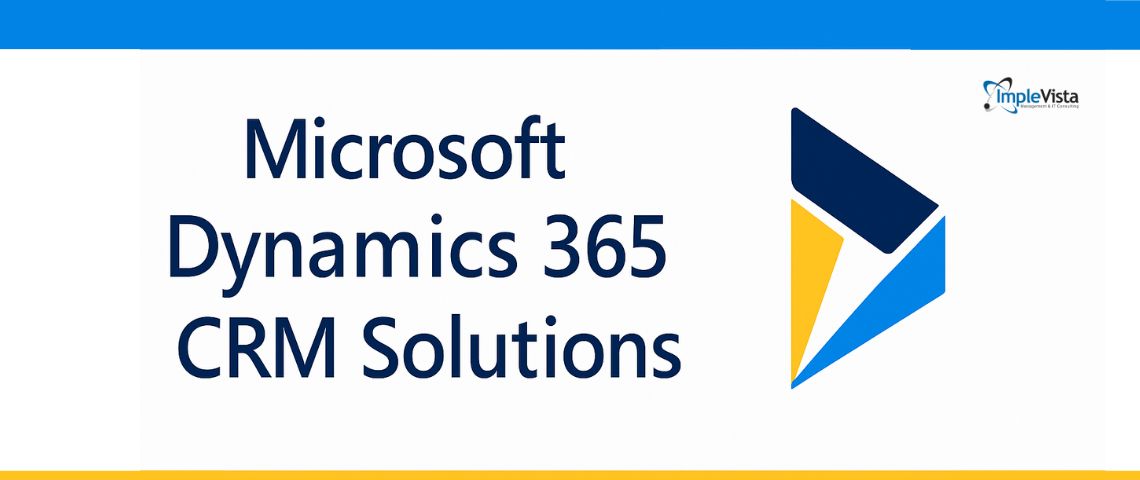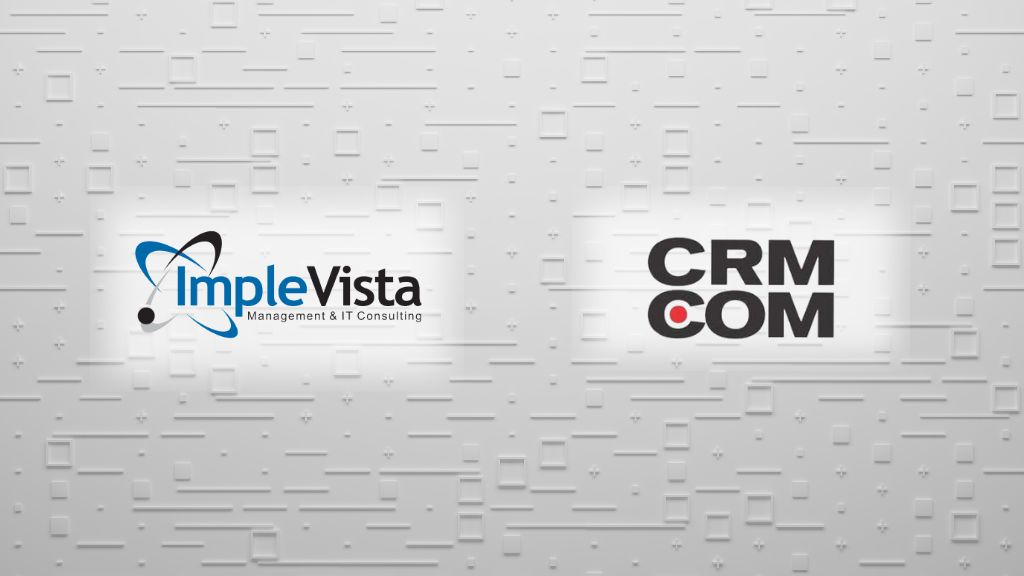In today’s competitive market, managing customer relationships effectively is critical for any business’s success. Customer Relationship Management (CRM) software helps organizations track and nurture leads, automate sales and marketing, and deliver personalized service – all in one central platform.
In fact, the global CRM market is booming, valued at over $101.4 billion in 2024 and projected to grow to $262.74 billion by 2032. Moreover, a whopping 91% of companies with 10+ employees use CRM software to stay competitive. This article explains the basics of CRM, its benefits, and how businesses across industries adopt CRM solutions to drive growth and improve customer experiences.
What is CRM Management and Why It Matters
CRM (Customer Relationship Management) is a strategy and software solution for organizing all your customer information, interactions, and processes in one place. As Implevista’s blog explains, CRM “involves using technology to manage how a company talks to its current and potential customers,” focusing on keeping customers and boosting sales. In essence, a CRM system becomes the nerve center for customer data:
- Centralized Customer Database: Store contact details, purchase history, support tickets, and communication notes in one shared space.
- Personalized Interactions: Use past purchase data and preferences to tailor marketing messages and sales pitches to each customer.
- Automation of Sales/Marketing: Automate repetitive tasks like sending follow-up emails, tracking leads, and scheduling campaigns, freeing teams to focus on strategy.
- 360-Degree Customer View: Gain a complete picture of each customer, including their activities, preferences, and feedback, to serve them better.
A robust CRM is more than an address book or spreadsheet. It connects your sales, marketing, and support teams, enabling them to work together seamlessly. As one expert note explains, CRM is “a set of integrated technologies used to document, track and manage an organization’s relationships and interactions with existing and potential customers”.
By unifying data across departments, a CRM system empowers businesses to make smarter decisions, improve service, and ultimately build stronger, more profitable customer relationships.
Key Components of CRM Software
CRM solutions typically include tools and modules that support various aspects of customer management. These modules can be grouped into three main categories:
- Operational CRM (Sales, Marketing, Service): Automates core business processes. Sales modules track leads, opportunities, and pipelines; marketing modules manage campaigns and email outreach; service modules handle customer support tickets and case management. For example, tools like Dynamics 365 Sales and Dynamics 365 Customer Service let teams log calls, schedule meetings, and resolve customer inquiries efficiently.
- Analytical CRM: Focuses on data analysis and reporting. It collects customer data (from purchases, website visits, etc.), analyzes trends, and delivers actionable insights. Businesses use analytical CRM to forecast sales, segment customers, and tailor marketing strategies. As Implevista notes, a key benefit of CRM is the “ability to put all customer data in one place and analyze it,” creating a 360° view of each customer. These insights help predict trends and improve decision-making.
- Collaborative CRM: Emphasizes communication and information sharing across departments. It ensures that sales, marketing, and support teams use the same customer data. By integrating channels (email, phone, social media) and internal workflows, collaborative CRM keeps everyone on the same page. For example, a customer support rep can see a customer’s recent purchases from the sales team, enabling faster issue resolution and consistent service.
Together, these CRM components give businesses a unified platform to manage the entire customer journey – from marketing and lead nurturing to sales and after-sales support. Implevista’s experience with Microsoft Dynamics 365 illustrates this: Dynamics 365 integrates Sales, Service, and Marketing into one suite, so data flows smoothly between teams for a complete customer view.

Benefits of CRM Software for Businesses
Implementing a CRM solution delivers tangible benefits across the organization. Key advantages include:
- Improved Customer Insights: With centralized customer records, businesses “see a complete picture of their customers” – their preferences, purchase history, and communication preferences. This deep understanding allows highly personalized marketing and sales approaches, increasing conversion rates. For example, personalized email campaigns driven by CRM data can greatly improve engagement and ROI. Studies show CRM can boost company revenue by up to 245%.
- Higher Sales and Productivity: CRM automates routine tasks (like data entry, lead assignment, and follow-ups), letting sales teams focus on selling. On average, businesses using CRM see a 29% increase in sales and 34% improvement in sales productivity. Sales forecasting and pipeline management features help teams close deals faster. Mobile CRM (accessible from smartphones) further boosts field productivity: 70% of businesses use mobile CRM, and firms using mobile CRM are 150% more likely to exceed sales targets.
- Better Customer Service: CRM keeps track of customer issues, support history, and feedback. Features like case management, knowledge bases, and omni-channel support enable faster issue resolution. As one CRM user stat shows, 85% of CRM users cite improved customer experience as a top benefit. Happy customers are more loyal – CRM can improve retention rates by up to 27%. In short, organized customer data and automated workflows mean support teams can provide consistent, informed service, increasing satisfaction and loyalty.
- Enhanced Marketing Effectiveness: Marketing teams gain tools for automation and analysis. They can segment audiences, send targeted campaigns, and score leads based on engagement. CRM analytics reveal which campaigns perform best. According to research, integrating CRM with marketing leads to reduced customer acquisition costs – 49% of companies saw an 11–20% reduction in costs after CRM. By aligning sales and marketing data, companies generate higher-quality leads and achieve better marketing ROI.
- Streamlined Collaboration and Efficiency: With a shared CRM system, sales, marketing, and support work on the same data. Implevista notes that without CRM, companies have “messy customer information” and inconsistent experiences. CRM fixes this by making data accessible to all teams. For example, a support agent can see notes from the salesperson about a customer’s preferences, enabling personalized help. According to studies, CRM shortens sales cycles by 8–14%, saving time and effort.
By automating tasks and providing clear analytics, CRM solutions also deliver strong ROI. Research shows every $1 spent on CRM returns about $8.71 on average. In practical terms, this means faster growth: companies report up to a 245% revenue lift after adopting CRM. In sum, CRM software isn’t just a database – it’s a growth engine that helps companies close more deals, serve customers better, and run leaner operations.
CRM Market Trends and Industry Insights
The CRM landscape is evolving rapidly. Cloud-based CRM dominates: about 87% of CRM deployments are on the cloud, offering flexibility and lower upfront costs. The global CRM market is projected to grow at ~12–13% CAGR, reaching about $262.7 billion by 2032. Key trends include:
- AI and Automation: Modern CRMs are integrating artificial intelligence (AI). Over half of businesses identify generative AI (like chatbots and predictive analytics) as a top CRM trend. Companies using AI-powered CRM report even higher success: for instance, those with AI-driven CRMs are 83% more likely to exceed sales goals. AI can auto-generate content, predict customer needs, and provide personalized recommendations.
- Mobile CRM: As mentioned, mobile access is now the norm. CRM platforms increasingly offer fully featured mobile apps, so sales reps can update deals or retrieve customer info on the go. This mobility boosts productivity and ensures data is captured in real time.
- Hyper-Personalization: Customers expect personalized experiences. CRM enables hyper-targeted marketing by leveraging customer data. Businesses leading in digital engagement use CRM to tailor every interaction.
- Integration with Other Systems: CRMs are integrating with ERP systems, social media tools, and even Internet of Things (IoT) devices. For example, Microsoft Dynamics 365 combines ERP and CRM (as a “connected, cloud-based suite”) to give firms unified data across finance, operations, and sales.
CRM Adoption by Industry
CRM solutions are adopted broadly across industries. According to one survey, technology companies lead with 94% CRM adoption, followed by manufacturing (86%), education (85%), and healthcare (82%). Other data confirms that industries like retail & consumer goods, banking/finance (BFSI), and healthcare extensively use CRM to retain customers and drive sales. Some industry highlights:
- Financial Services: Banks and insurers use CRM to manage customer portfolios, cross-sell products, and ensure compliance. A well-known CRM adage: “80% of future profits come from 20% of existing customers” – highlighting the need for CRM-driven loyalty strategies.
- Retail & E-commerce: Retailers tie CRM into point-of-sale and e-commerce platforms. For example, Implevista’s own iVCommerce (an e-commerce solution) would typically integrate with CRM to synchronize customer orders and shopping behavior. Personalized product recommendations, loyalty programs, and omnichannel support are enabled by CRM.
- Healthcare: Clinics and hospitals adopt CRM to track patient relationships, appointment scheduling, and follow-ups. Improved patient communication (reminders, personalized health tips) is a key benefit.
- Travel and Hospitality: Travel agencies use CRM to manage bookings, preferences, and promotions. Implevista’s iVTrip Travel Agency Software is a prime example: it combines booking, accounting, and marketing tools so agencies can streamline operations and improve customer experiences. By integrating CRM features, iVTrip helps agencies send timely travel offers and handle customer inquiries efficiently.
- Manufacturing and B2B: Manufacturers use CRM to manage distributor networks, service contracts, and large account relationships. Salesforce forecasts and analytics help in demand planning.
No matter the sector, businesses of all sizes benefit from CRM. Even startups are adopting cloud CRMs early. As one CRM guide notes, the “rapid growth in the CRM market” is making advanced features accessible to companies of every size. The key is choosing a CRM system that fits your industry needs and scales with your growth.

Choosing and Implementing the Right CRM
With so many CRM options, businesses must carefully evaluate features and strategy. Here are some best practices:
- Assess Your Needs: Identify which teams will use the CRM (sales, support, marketing) and what problems it must solve. For example, if marketing automation is crucial, ensure the CRM has strong campaign management tools. If you operate globally, look for multi-currency and compliance features.
- Cloud vs. On-Premise: Most modern CRMs are cloud-based (SaaS), which means no hardware setup and automatic updates. Cloud CRMs offer lower initial costs and easier maintenance. Indeed, about 87% of companies now use cloud CRM. On-premise CRMs (installed locally) can be more secure and customizable, which some large enterprises prefer for strict data control. Implevista’s services include cloud engineering and migration, so we can help cloud-transition if needed.
- Integration and Customization: Your CRM should integrate with existing systems (ERP, email, e-commerce). Platforms like Microsoft Dynamics 365 or Salesforce have extensive partner ecosystems. Also consider customization: many CRMs allow custom fields, workflows, and modules. Implevista often tailors Dynamics 365 with add-ons like local payment gateways or custom reporting for our clients.
- User Adoption: A CRM only works if your team uses it. Training and change management are critical. Involve end-users early in the selection process. Choose a CRM with an intuitive interface and mobile app so adoption is smooth. (For example, Microsoft Dynamics 365 has a familiar Office-like interface that many users find easy to learn.)
- Measuring Success: Define metrics (KPIs) before you start. Common CRM metrics include lead response time, sales conversion rate, customer satisfaction score, and CRM usage rate. Regularly review these metrics in your CRM dashboard to ensure the system drives real benefits.
By following these steps, businesses can implement CRM as a strategic tool rather than just software. Implevista offers consultation and implementation services for popular CRMs (Microsoft Dynamics 365, Salesforce, etc.) to help ensure a smooth rollout and strong ROI.
CRM Solutions and Implevista’s Expertise
At Implevista, we understand CRM solutions deeply. Our Microsoft Dynamics 365 CRM Solutions are designed for 5X growth in sales by integrating sales, marketing, and customer service workflows. We also develop industry-specific platforms – for example, our iVTrip travel agency software includes built-in CRM features (it “helps travel agencies streamline their operations, provide better customer experiences, and grow their business”).
Additionally, our digital marketing services team uses CRM analytics to target campaigns effectively. By linking CRM with Implevista’s end-to-end services (cloud migration, e-commerce, business analytics), we help clients maximize the value of CRM technology.
Next Steps
CRM software is no longer a luxury – it’s essential. With a CRM, your business can deliver personalized experiences at scale, make data-driven decisions, and build lasting customer loyalty. The evidence is clear: companies that invest in CRM tools see higher sales, more efficient teams, and happier customers. Whether you’re a small startup or a large enterprise, there’s a CRM solution to fit your needs.
If you’re ready to transform your customer relationships, contact Implevista today. Our experts can help assess your CRM needs and tailor a solution (like Microsoft Dynamics 365 or a custom iVTrip deployment) that accelerates your growth. Explore our services and case studies to see how we’ve helped businesses succeed. Don’t miss out on the CRM advantage – reach out now or subscribe to our blog for more insights on CRM, digital marketing, and software solutions. Let’s grow your business together!

Frequently Asked Questions for CRM Software Solutions
Q1: What is CRM software and how does it work?
A CRM (Customer Relationship Management) system is a platform that centralizes all your customer data and interactions. It works by collecting information from sales, marketing, and support channels into one database. Teams then use the CRM to track leads, manage contacts, automate follow-ups, and analyze customer trends. In short, it helps businesses organize their customer-related workflows and improve relationships at every touchpoint.
Q2: Why does my business need a CRM?
CRM software ensures that no customer gets lost in the process. It improves sales coordination (by tracking leads and sales pipeline), streamlines marketing campaigns (by targeting the right audiences), and enhances customer service (by logging support cases). Companies using CRM report significant benefits: faster sales cycles, higher customer satisfaction, and better team productivity. With most businesses (91%+) using CRM, not adopting it could mean falling behind competitors.
Q3: What are the main types of CRM systems?
There are three main types: (1) Operational CRM focuses on day-to-day customer-facing processes (sales, marketing, service automation). (2) Analytical CRM handles data analysis and reporting to identify trends and opportunities. (3) Collaborative CRM ensures different teams share customer information and work together. Many modern CRMs combine all three aspects into a unified platform.
Q4: How is CRM used in different industries?
CRM is widely used across industries. Tech and IT companies lead adoption (94% use CRM). In retail and e-commerce, CRM tracks customer purchases and powers personalized marketing. Financial services use CRM for client management and cross-selling. Healthcare providers use CRM to manage patient relationships. Even travel agencies benefit: for instance, Implevista’s iVTrip software (for travel businesses) uses CRM features to manage bookings and customer interactions.
Q5: Can small businesses afford CRM software?
Yes. There are CRM solutions designed for businesses of all sizes, including small companies. Many cloud-based CRMs offer flexible pricing and free tiers for startups. In fact, CRMs often pay for themselves: research indicates that the average ROI is about $8.71 for every $1 spent on CRM. The key is choosing a CRM scaled to your needs – which is why many startups adopt SaaS CRM early to support growth.
Q6: What’s the difference between cloud-based and on-premise CRM?
A cloud-based CRM is hosted by the vendor and accessed via the internet, which means no installation on your servers and automatic updates. It’s easier to start with and cheaper upfront. On-premise CRM is installed locally on your own servers, giving you more control and customization (often preferred by large enterprises). Today, about 87% of new CRM deployments are cloud-based.
Q7: How do I ensure successful CRM implementation?
Successful CRM implementation requires good planning. First, define clear objectives (e.g., increase sales by X%). Involve end-users early and provide thorough training. Migrate existing customer data carefully (clean it first). Integrate the CRM with other systems (email, e-commerce, etc.). Finally, monitor key metrics (sales growth, user adoption rate) to gauge success. Implevista offers consulting to guide businesses through these steps.
Q8: How does CRM integrate with digital marketing?
CRM and digital marketing go hand-in-hand. Marketing teams use CRM data to target campaigns (e.g., segment audiences based on past purchases). CRMs track campaign responses and website interactions, feeding that data back for better targeting. For example, Implevista’s digital marketing services use Google Analytics and CRM insights to craft data-driven campaigns. Integration allows you to automate email marketing, track lead sources, and measure ROI across channels.
Q9: Can CRM handle both B2B and B2C businesses?
Absolutely. In B2B (business-to-business), CRM tracks relationships with companies, individual contacts, and long sales cycles. In B2C (business-to-consumer), CRM handles high-volume interactions and smaller deals. Features like lead management, customer segmentation, and support tickets apply to both. Many CRM platforms can be configured for different business models. The key is tailoring fields and workflows to your customer type.
Q10: Which are some top CRM software options?
Popular CRM platforms include Salesforce, Microsoft Dynamics 365, HubSpot, and Zoho CRM. Salesforce is known for its rich features and large ecosystem. Dynamics 365 (by Microsoft) offers strong ERP integration – Implevista specializes in implementing Dynamics 365 for customer engagement. HubSpot is user-friendly and great for inbound marketing. Zoho CRM is cost-effective for small businesses. The best choice depends on your requirements, budget, and existing tools.




